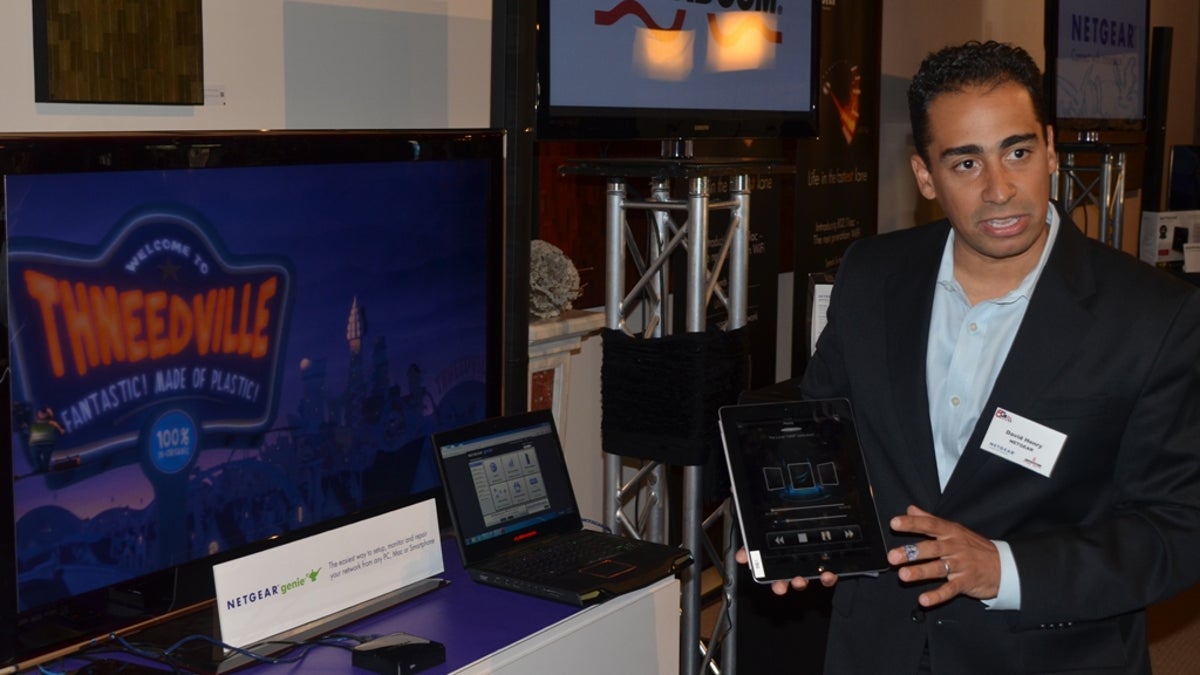Netgear demos Broadcom-based 802.11ac Wi-Fi devices
Netgear unveils new products that provide access to 802.11ac wireless for better and faster home wireless networking.

Netgear today teamed up with Broadcom to announce and demonstrate a new line of wireless networking products that use Broadcom's 802.11ac chips. These are the chips that Broadcom showed off in preparation for and during CES 2012.
These devices include two routers, the Netgear R6300 WiFi and the R6300 WiFi, and one USB adapter, the A6200 WiFi.
All of these devices are based on the new 802.11ac Wi-Fi standard (or 5G Wi-Fi, as Broadcom calls it). The Netgear R6300 is the top of the line and supports the three-stream 802.11ac standard that offers up to 1.3Gbps on Wi-Fi speed on the 5Ghz band. On the 2.4Ghz band, it supports the three-stream version of the existing Wireless-N standard, offering up to 450Mbps. The router is fully backward compatible with all existing wireless n/g/a/b clients and also comes with two USB 2.0 ports to host external hard drive and printers.
The R6200 WiFi router is similar to the R6300, except it supports only the two-stream standard of 802.11ac (up to 900Mbps on the 5Ghz band) and has only one USB 2.0 port. Generally, 802.11ac uses only the 5Ghz frequency band and forgoes the crowded 2.4Ghz band.
The A6200 WiFi Adapter is the first USB 802.11ac-based adapter on the market and offers speeds up to 900Mbps. It's also backward compatible with 802.11n/g/a/b routers. Since you can only take advantage of the 802.11ac speed when the client side also supports the standard, this USB adapter is important and allows users to manually add 802.11ac to their laptop or desktop computer. Future devices will come with built-in support for 802.11ac.
The two Netgear R6300 and R6200 WiFi routers feature Netgear Genie software that allows you to monitor and manage your home network via a mobile app on an iOS or Android device. You can even use the app to stream digital content to the mobile device or play it back to any DLNA media player within the local network. It also enables AirPrint support, making any connected printers support printing directly from any iOS devices
Other than that, the two routers also come with other features commonly found in other routers, such as Parental Control, QoS, and so on. During the demo, David Henry, Netgear's vice president of product management for retail products, showed off how he could simultaneously stream four different high-def movies, using 802.11ac, to four HDTVs without any of them showing any lag, something that's not possible with the existing 802.11n. He also showed how the Netgear Genie worked with media streaming as well as remote management of the home network.
Netgear says the new 6300 WiFi router is available now with the estimated cost of $200. The 6200 WiFi router and 6200 WiFi Adapter will be available later this year with estimated prices of $180 and $70, respectively. Check back for our review of them.

